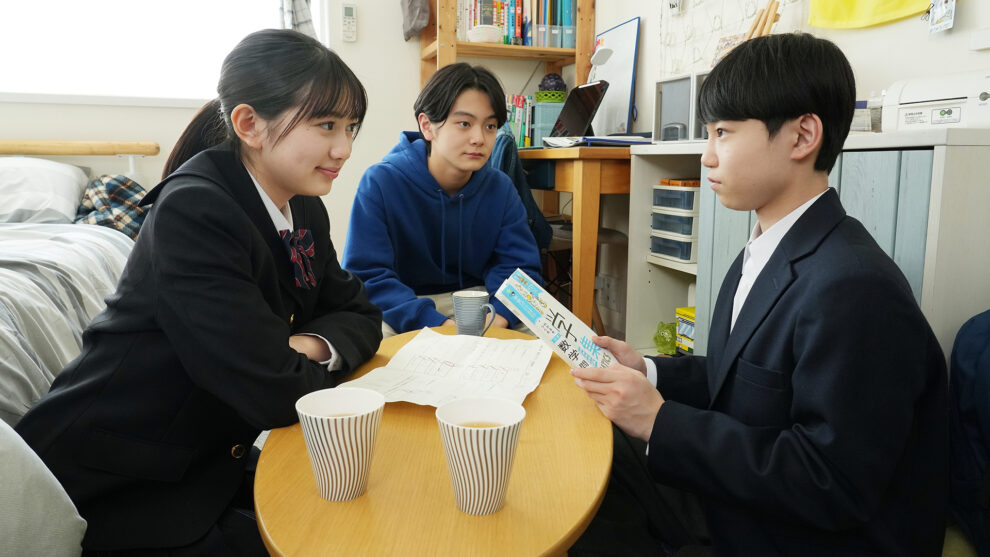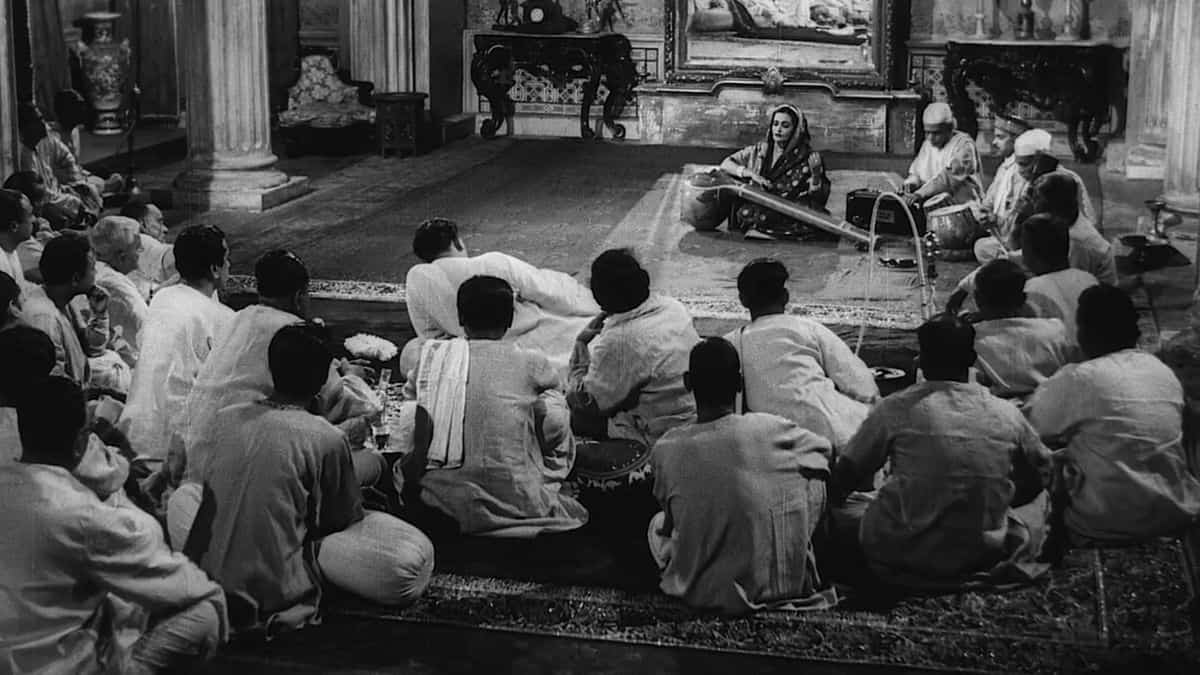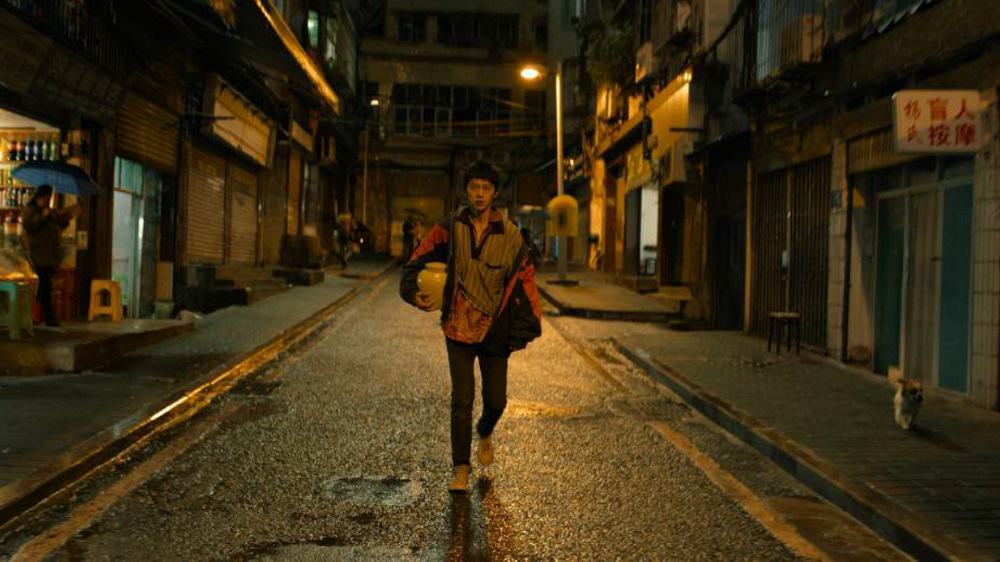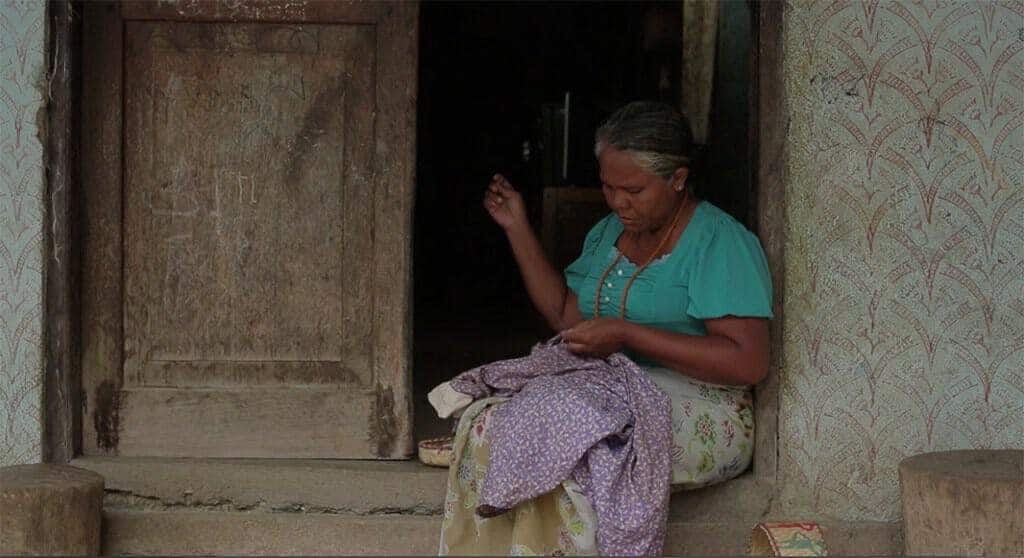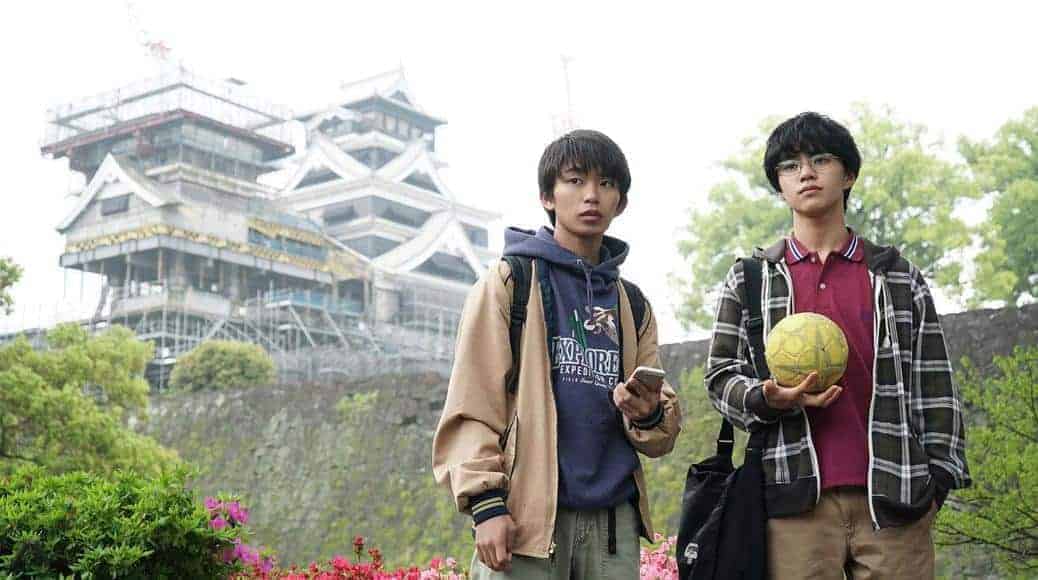In 2020, Naoya Fujita won the Japanese Short Film Competition of SKIP City International D-Cinema with “Stay” (2019). Following up in 2022, he directed “Long-Term Coffee Break” (2022) for the New Directions in Japanese Cinema Project. “Confetti” is his first feature film and was produced to commemorate the 20th anniversary of SKIP City International D-Cinema Festival and the 90th anniversary of Kawaguchi City. Enough reasons to take a closer look at this exciting new director.
Confetti is screening at Skip City International D-Cinema Festival

Yuki is a high school student living on the road with his father, who is the leader of the Yuhiza Theatre Group. Due to touring, Yuki has to change school almost every month and his life is in constant change marked by various encounters and partings. Coming to town, he is determined to focus on his biggest wish, to become an actor. He is not interested in finding new friends at his school but when he meets Ken, who is skipping class, Yuki's beliefs begin to alter.
Check also this article
Benefiting from his experience in New York as a member of Japan Film Overseas Expansion Enhancement Project, Fujita presents (ironically) a more mature coming-of-age drama that differs from his earlier short films. Storywise, as well as in terms of cinematography and editing, “Confetti” is a bit more reserved than “Stay” but does not fail to satisfy with a strong ending. By choosing the sensitive topic of teenage romance and sexual awakening, the director plays with the ambivalence of Ken, who used to be in an on-off relationship with his classmate Maya, but is somewhat falling for the new boy in town. For most of the time, “Confetti” successfully hides this underlying topic by focusing on Yuki's struggle at school and the starting friendship between him and the two hotshots in class, Ken and Yuki, who give him private lessons.
The main plot line is intertwined with the arc of Asaka, the daughter of a super fan of the Yuhiza Theatre Group. Despite her mother's retention, she became part of an Idol group that ultimately failed, and so she got a second chance as a performer in the theatre group of Yuki's father. Ken happens to be her biggest fan and is crushed when he learns about the dissolution of the idol group. When Yuki introduces Asaka to him as the new member of the Yuhiza, Ken's passion for the stage is inflamed. But who will win his heart?
The identity crisis of the two male protagonists is further nurtured by the absence of their real mothers. Ken was adopted and Yuki's mother died when he was five years old. In search of a replacement, the boys struggle to find a place in the world but at the same time support each other actively. This leads to a strong bounding and adds another perspective on the parts of Maya and Asaka, who vacillate between love interest and female identity figure. The educational role of the headteacher, who initiates the first encounter between Ken and Yuki, and the supportive backup of Yuki's father are in strong opposition to the missing male influence on the upbringing of Asaka and Maya. The script embraces the diametral dilemma of one-sided parenting. In doing so, the plot highlights the character development of the teenagers from kids seeking a meaning of life to independent adults.
Although this feature film debut strikes a new path, Naoya Fujita relies on regular collaborators from his university days, including producer Yujiro Imae and writer Suzuyuki Kaneka. The young cast led by Shion Matsufuji in the role of Yuki act very professionally and authentically conveys the fragile matter. Veteran actors such as Reiko Takashima (“As the Gods Will”, 2015) and Hinako Saeki (“Uzumaki”, 2000) play alongside their children.
Bringing together the two worlds of theatre and high school, “Confetti” is a shimmering coming-of-age drama with classic elements of the genre. The young filmmaker's debut film was sponsored by the Japan Culture and Taishu Engeki Association and is also clearly influenced by Western patterns of directing. Therefore, it is revealing to see how Japanese and Western approaches of filmmaking interact.


